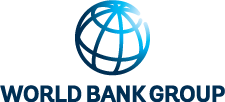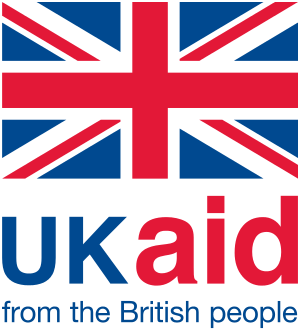Event Summary
Over the course of May 31st through June 2nd, 350 people gathered at The Kilimanjaro Hotel in Dar es Salaam to imagine the future of urbanization in Tanzania and surrounding regions.
Participants included:
200+ government officials from TZ
16 honourable guests from surrounding nations
75 journalists from 42 African countries
10 local CSO representatives
+ donor partners and experts in the field of urban resilience
The conference served as an introduction to the Tanzania Urban Resilience Programme – a partnership between the World Bank and the UK Department for International Development that aims to support the Government of Tanzania in its endeavour to improve the country’s resilience to climate and disaster risk.
Day One offered an overview of the programme as guided by sessions on key programme priorities – risk identification, risk reduction, and emergency preparedness and disaster management. Participants learned about initiatives that have informed the programme strucuture, projects currently being undertaken, and plans for the near future. Lively Q + A’s brought forth recommendations for implementation and further collaboration between partners.
Day Two brought TURP implementers together for technical side sessions on the topics of Open Data for Resilience, Msimbazi River Upgrades, Hydromet and Emergency Response Planning, and CSO Partnerships for Resilience. These sessions enabled pointed input on programme implementation and forged connections between key implementers.
Day Two + Three hosted a high-level regional symposium on Greening Africa’s Cities – featuring presentations from policy makers, researchers, government officials, NGOs, and donors that considered the impact of urbanization on the environment in Africa. Recent research and analysis undertaken on this crucial but under-examined area was presented, and important initiatives for sustainability in African cities were discussed.
Here are some key points from the sessions:
Day 1 May 31st – URBAN RESILIENCE – TANZANIA’S PROGRAMME
“Natural and human induced risks present some of the most serious threats to Tanzania’s social and economic development” – Brigadier General Msuya
The three priorities for Urban Resilience:
- Risk Identification – best practices and embracing new technology
- Risk Reduction – strength through structural and non-structural changes
- Preparing for Disaster – building capacity in local government departments and communities
Additional considerations:
- Community engagement is vital to securing sustainable solutions for resilience to climate risk
- Strengthening knowledge on resilience measures, particularly through academic initiatives, will improve the programme’s success
Day 2 June 1st – URBANIZATION AND THE NATURAL ENVIRONMENT IN AFRICAN CITIES
“African cities have the opportunity to grow in a sustainable way instead of growing dirty now and cleaning up later.” – Roland White
- Take bold measures to clean up and change urban development trajectories
- Focus on integrating natural resources and climate change resilience into city planning
- Use the lessons learnt from other cities, including both successes and failures
Day 3 June 2nd – GREEN URBAN DEVELOPMENT – STRATEGIES AND IMPLEMENTATION
“Don’t think about funding; think about reaching out and demonstrating, then people are motivated” – Michael O’Brien-Onyeka
- Map the natural capital to identify critical resources and key services provided by ecosystems
- Work with communities and local government to understand and include formal and informal decision-making processes
- Incorporate the value of the natural environment into the value of the city
Conference Materials
If you missed any information you can now access the presentations and photos of Day 1, Day 2 and Day 3. We are working on transcribing the technical sessions and workshop notes and once everything has been aggregated we invite you to visit the URTZ website to download the information.
Green Urbanization Reports
Main report
Cost-benefit analyses
- Return on Investment in Green Urban Development : Amelioration of Flood Risk in the Msimbazi River Catchment, Dar Es Salaam, Tanzania
- A Preliminary Investigation of the Potential Costs and Benefits of Rehabilitation of the Nakivubo Wetland, Kampala
- A Spatial Valuation of the Natural and Semi-Natural Open Space Areas in eThekwini Municipality
Environmental profiles
- Promoting Green Urban Development in African Cities: eThekwini, South Africa Urban Environmental Profile
- Promoting Green Urban Development in African Cities: Dar Es Salaam, Tanzania Urban Environmental Profile
- Promoting Green Urban Development in African Cities: Kampala, Uganda, Urban Environmental Profile
Toolkit of Measures for Managing Environmental Externalities in Urban Areas
Media
You can read more about the conference in reports from Reuters and The Citizen.
A full conference report will be uploaded to the Tanzania Urban Resilience Programme’s Online Community by the end of June.



